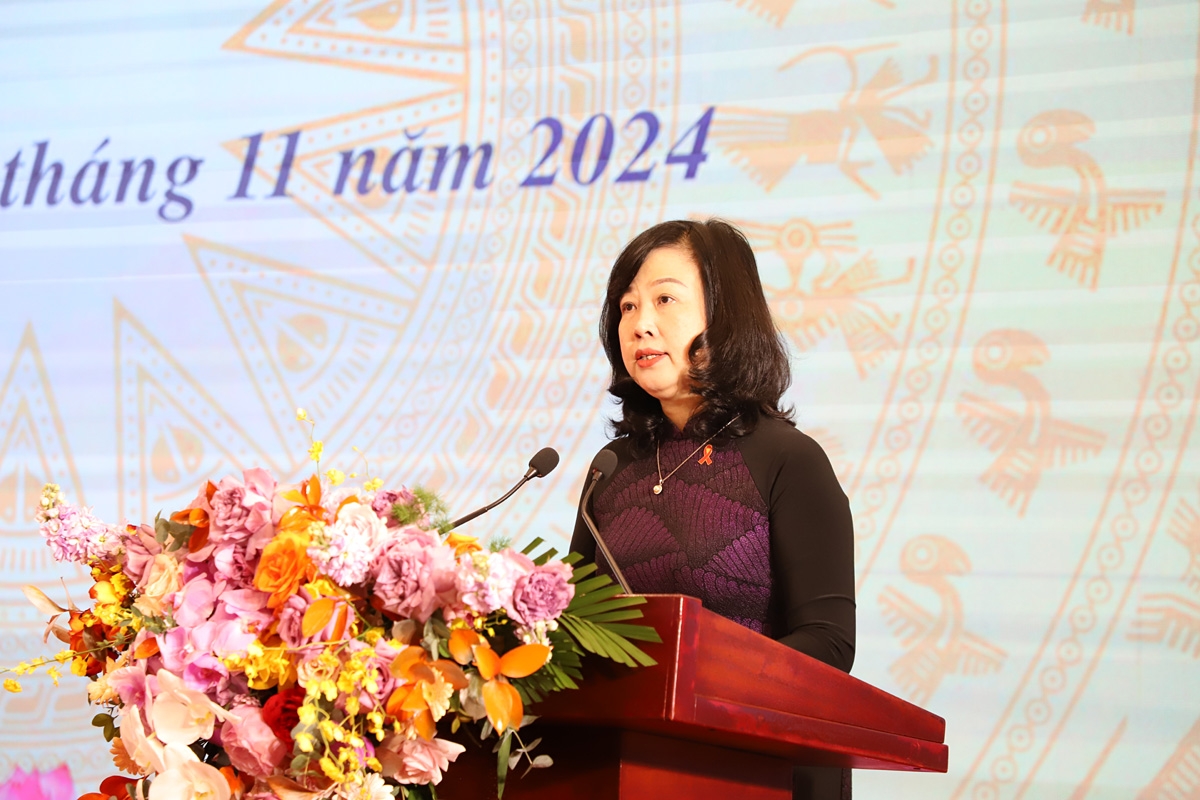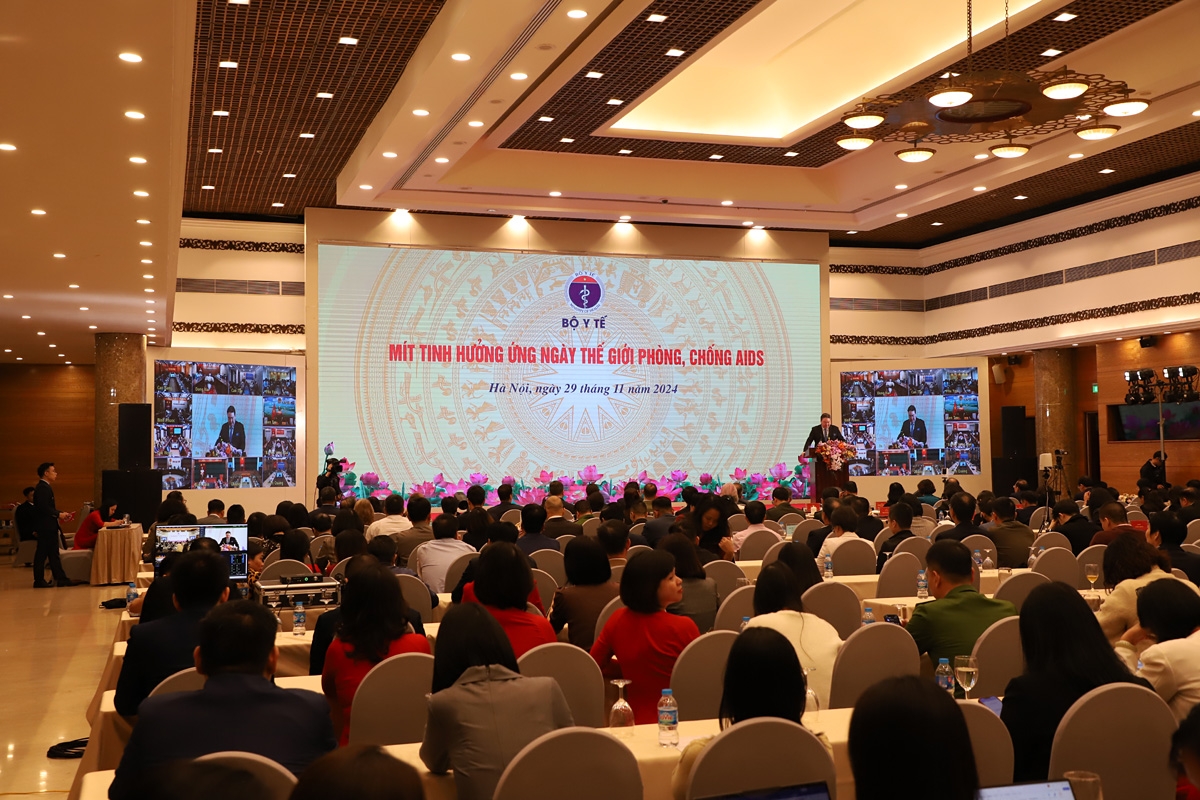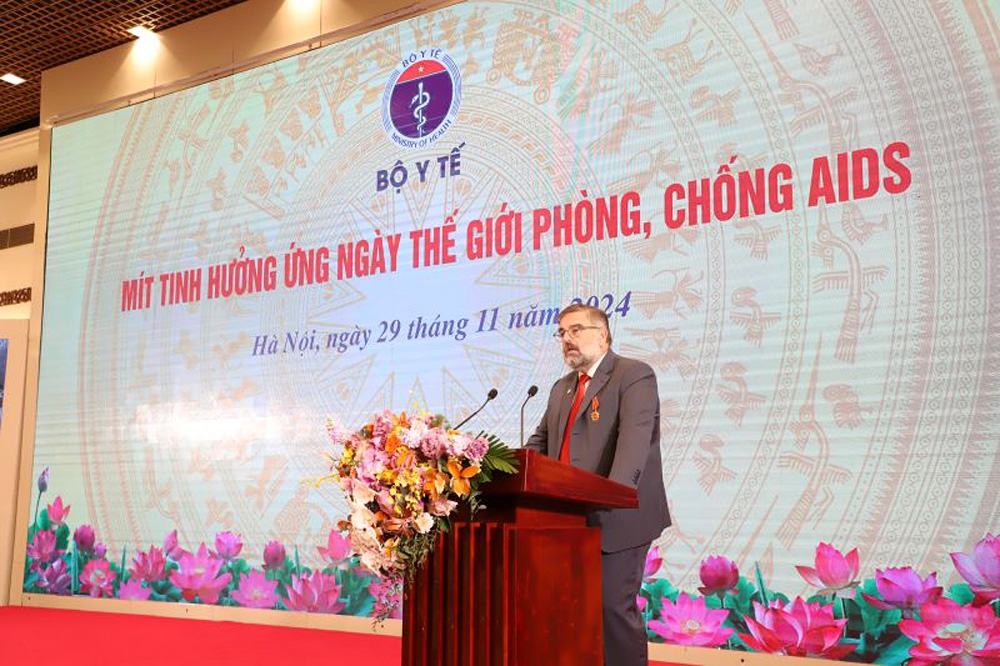HIV/AIDS treatment yields encouraging results, says Health Ministry
VOV.VN - Vietnam has made significant progress in HIV/AIDS treatment, contributing to efforts to end the lethal disease by 2030, said Minister of Health Dao Hong Lan at a meeting in Hanoi on November 29 to mark World AIDS Day (December 1).

Addressing the event, Lan said Vietnam’s HIV/AIDS prevention and control program, after nearly 35 years of implementation, has garnered significant attention both domestically and globally, becoming a regional and international success story in the fight against HIV/AIDS.
The Ministry of Health, in collaboration with local governments, has launched a robust and integrated HIV/AIDS prevention and treatment program, offering services that cover the entire continuum of care, from prevention to testing and treatment.
This year, nearly 48,000 individuals have engaged in methadone treatment to address opioid addiction, while almost 70,000 people have received the pre-exposure prophylaxis (PrEP) to prevent HIV infection.
In 2023, Vietnam led the Asia-Pacific region in the number of people treated with PrEP, effectively reducing the risk of HIV transmission for 97% of its users.
The country has implemented diverse HIV counseling and testing models, extending services from healthcare facilities to the community. Annually, these services provide counseling and testing to over 2 million people, and detect approximately 11,000 new HIV cases, enabling early intervention.
It has also made outstanding treatment achievements, with nearly 183,000 patients nationwide receiving the antiretroviral treatment (ARV) therapy. It is among the world leaders in HIV treatment, with over 97% of patients achieving viral suppression, effectively reducing the risk of transmission.

According to the minister, in recent years, Vietnam has made concerted efforts to mobilize domestic financial resources to sustain its HIV/AIDS prevention and treatment program, with a particular focus on financing HIV/AIDS treatment services through the Health Insurance Fund. Local administrations have also increased their budgets for HIV/AIDS programs via financial security plans and initiatives, while encouraging greater private-sector participation in combating HIV/AIDS.
To maximize the effectiveness of these valuable international contributions and reaffirm its commitment to global donors, Lan said Vietnam has actively coordinated with relevant agencies and organizations in restructuring the Country Coordinating Mechanism (CCM) for the Global Fund to Fight AIDS, Tuberculosis, and Malaria, ensuring a more efficient and transparent allocation of resources.

At the meeting, Eamonn Murphy, Director of Regional Support Teams for Asia-Pacific, Eastern Europe, and Central Asia of the Joint United Nations Programme on HIV/AIDS (UNAIDS), encouraged Vietnam to consolidate its efforts in responding to HIV to achieve its national goals.
Highly effective interventions for HIV prevention need to be expanded further, while the significant gap between the number of people diagnosed with HIV and those receiving antiretroviral treatment must be bridged, he said.
According to him, actions to reduce stigma and discrimination and to ensure that everyone in need can access HIV prevention and treatment services must be intensified.
To do this, he said Vietnam should strengthen its policy-making efforts and enhance cross-sectoral coordination in its HIV prevention and control initiatives.
Speaking at the event, Deputy Prime Minister Le Thanh Long, who is Chairman of the National Committee for HIV/AIDS, Drug, and Prostitution Prevention, emphasized the importance of raising awareness and collective responsibility in combating HIV/AIDS.
He called on all ministries, sectors, and local authorities to enhance investment, allocate budgets, and ensure financial resources for HIV/AIDS prevention and treatment efforts, while also improving relevant laws and policies to facilitate these initiatives.


